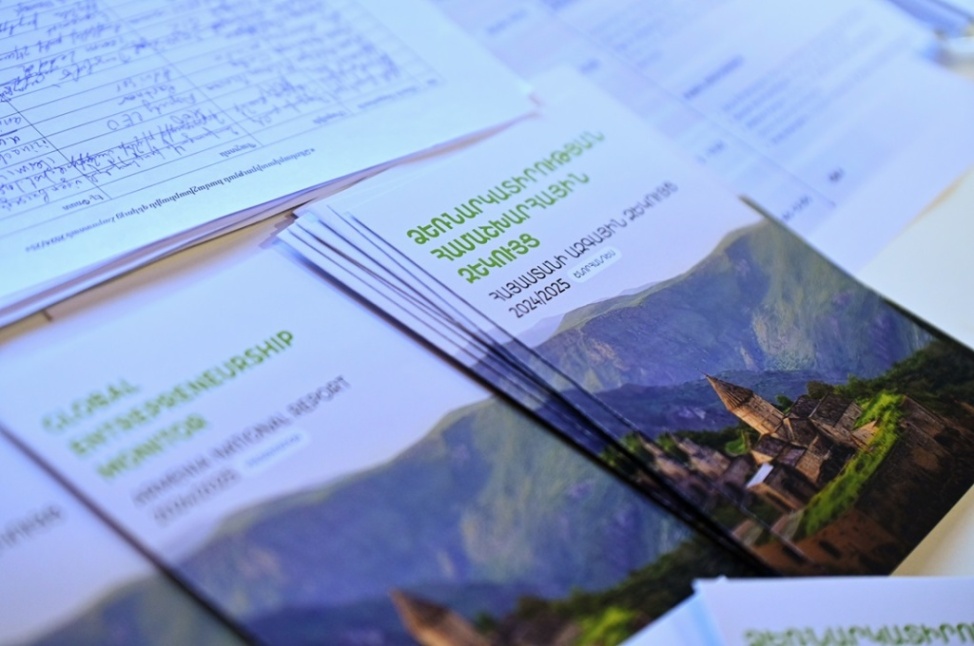Armenia-Turkey Relationship Improvement Can Resume If Karabakh’s Status Concretized
06.09.2011,
03:22
The process of improvement of relations between Armenia and Turkey can resume if Nagorno-Karabakh Republic’s status is concretized, Gagik Harutyunyan, political analyst and director of Noravank scientific and educational center, said Friday
YEREVAN, September 5. /ARKA/. The process of improvement of relations between Armenia and Turkey can resume if Nagorno-Karabakh Republic’s status is concretized, Gagik Harutyunyan, political analyst and director of Noravank scientific and educational center, said Friday at a news conference.
“I think the relations can come out from the current frozen situation and to get a new impetus only if a dramatic progress is reached in Karabakh conflict settlement process,” he said.
The political analyst is convinced that nothing but this progress can bring out things from the deadlock.
He also said that Turkey is trying to downgrade the importance of Armenian issue, while actually it takes this issue seriously – as seriously as Kurdish issue.
Harutyunyan stressed that Armenia has taken adequate steps in Armenian-Turkish process and should remain stuck to the restrained stance taken on the matter.
He said that Turkey has already demonstrated its attitude toward Armenia by dismantling the Armenian-Turkish friendship monument and making rough statements.
There are no diplomatic relations between Armenia and Turkey. The border between the two countries was closed in 1993 at Ankara’s initiative.
Relations between Armenia and Turkey remain tense because of Ankara’s biased stance on Karabakh problem and its painful reaction to Armenia’s efforts to obtain worldwide recognition of the fact of Armenian Genocide.
Thaw in Armenian-Turkish relations began in 2008 at Armenian President Serzh Sargsyan’s initiative.
On October 10, Armenian and Turkish foreign ministers Edward Nalbandyan and Ahmet Davutoglu signed the protocols on establishment of diplomatic ties between the two countries and development of bilateral relations. The protocols had to be ratified by the two countries’ parliaments, but on April 22, 2010, the Armenian president signed a decree ceasing the process of ratification. He said Turkey was not ready to continue the process.
It became known about ten days ago that the protocols had been automatically removed from the Turkish parliament’s agenda, in accordance with its regulations, since they had remained unconsidered within one convocation. It is unclear whether Turkish Prime Minister Recep Tayyip Erdogan intends to send these protocols to the parliament again or not.--0--
“I think the relations can come out from the current frozen situation and to get a new impetus only if a dramatic progress is reached in Karabakh conflict settlement process,” he said.
The political analyst is convinced that nothing but this progress can bring out things from the deadlock.
He also said that Turkey is trying to downgrade the importance of Armenian issue, while actually it takes this issue seriously – as seriously as Kurdish issue.
Harutyunyan stressed that Armenia has taken adequate steps in Armenian-Turkish process and should remain stuck to the restrained stance taken on the matter.
He said that Turkey has already demonstrated its attitude toward Armenia by dismantling the Armenian-Turkish friendship monument and making rough statements.
There are no diplomatic relations between Armenia and Turkey. The border between the two countries was closed in 1993 at Ankara’s initiative.
Relations between Armenia and Turkey remain tense because of Ankara’s biased stance on Karabakh problem and its painful reaction to Armenia’s efforts to obtain worldwide recognition of the fact of Armenian Genocide.
Thaw in Armenian-Turkish relations began in 2008 at Armenian President Serzh Sargsyan’s initiative.
On October 10, Armenian and Turkish foreign ministers Edward Nalbandyan and Ahmet Davutoglu signed the protocols on establishment of diplomatic ties between the two countries and development of bilateral relations. The protocols had to be ratified by the two countries’ parliaments, but on April 22, 2010, the Armenian president signed a decree ceasing the process of ratification. He said Turkey was not ready to continue the process.
It became known about ten days ago that the protocols had been automatically removed from the Turkish parliament’s agenda, in accordance with its regulations, since they had remained unconsidered within one convocation. It is unclear whether Turkish Prime Minister Recep Tayyip Erdogan intends to send these protocols to the parliament again or not.--0--



